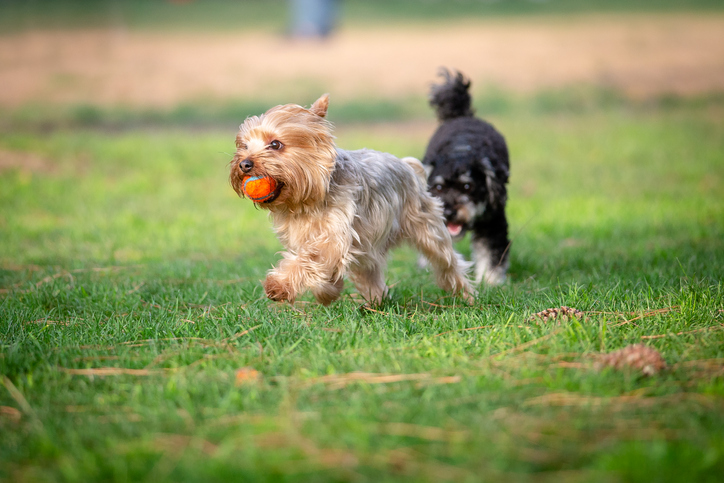Dogs that are poorly socialised can be a handful to deal with. They may be fearful or aggressive around other people and animals, which can make it difficult to train them, take them out in public, and lead to problems like biting or running away.
Although there are plenty of resources out there in the dog world that can help give you some direction on what steps to take in socializing your dog, you might just be looking for a place to start, and tools to understand the signs of a poorly socialised dog.
From puppy training classes to doggy daycare, we will offer up some indications – and some suggestions – on what to do if you’re worried about your dog’s behavior with other pups. By addressing any issues early on, you can help ensure that your pup grows up into a well-adjusted adult dog.
- The dog is afraid of people.
One of the most obvious signs that a dog is poorly socialised is if they’re afraid of people. This can manifest itself in different ways, such as cowering when someone approaches, or barking and trying to bite when someone tries to pet them. If a dog is afraid of people, it’s going to be very difficult to socialise them.
Some questions to ask yourself might be: does your pup seem anxious or nervous when meeting new people or animals? Are they quick to startle or become defensive when someone approaches them? If so, it’s important to seek out professional help. Puppy training classes can provide the socialisation your pup needs to grow into a well-adjusted adult dog.
In addition, puppy playgroups or doggy daycare can be a great way to provide positive social experiences in a controlled environment. By addressing any issues early on, you can help ensure that your pup grows up into a well-rounded companion.
- The dog is aggressive towards other dogs.
Another sign that a dog is poorly socialised is if they’re aggressive toward other dogs. This may be manifested in growling, lunging, or even fighting when they’re around other dogs. Poorly socialised dogs may also try to isolate themselves from other dogs and may not enjoy being in group settings.
Dogs are social animals by nature, and part of being a responsible pet owner is ensuring that your dog is well-socialised, as this aggressive behaviour can transform into bigger problems. This can make doggy daycare or walks in the park a stressful experience for both you and your dog.
If you’re concerned that your dog is poorly socialised, there are several professional dog trainers who can help your dog learn to enjoy the company of other dogs. With patience and some training, you can help your dog overcome their fear of other dogs and build confidence in social situations.
- The dog is anxious or stressed in new environments.
One of the top signs that a dog is poorly socialised is if they seem anxious or stressed in new environments. This may manifest itself as panting, shaking, or hiding behind their owner when they’re in new places. If a dog is anxious or stressed in new environments, it will be difficult to socialise them and help them feel comfortable in new situations.
Doggy daycare can be a great way to help socialise a dog who is anxious or stressed in new environments. At doggy daycare, dogs will interact with other dogs and people in a safe and controlled environment. This can help them to feel more comfortable in new situations and make it easier to socialise them.
Conclusion
It’s safe to say that dogs that are poorly socialised can be a challenge to work with. However, there are some signs that you can look for that will indicate whether a dog is poorly socialised or not, and steps to take once you take the time to recognize these behaviours.
If you see any of these behavioural signs in a dog you’re working with, such as anxiety, aggression, or fear, it’s important to seek professional help so that you can begin the process of socialising them and helping them feel more comfortable around people and other dogs. Puppy training school, doggy daycare, and daily routine tasks are just a few places to start.
